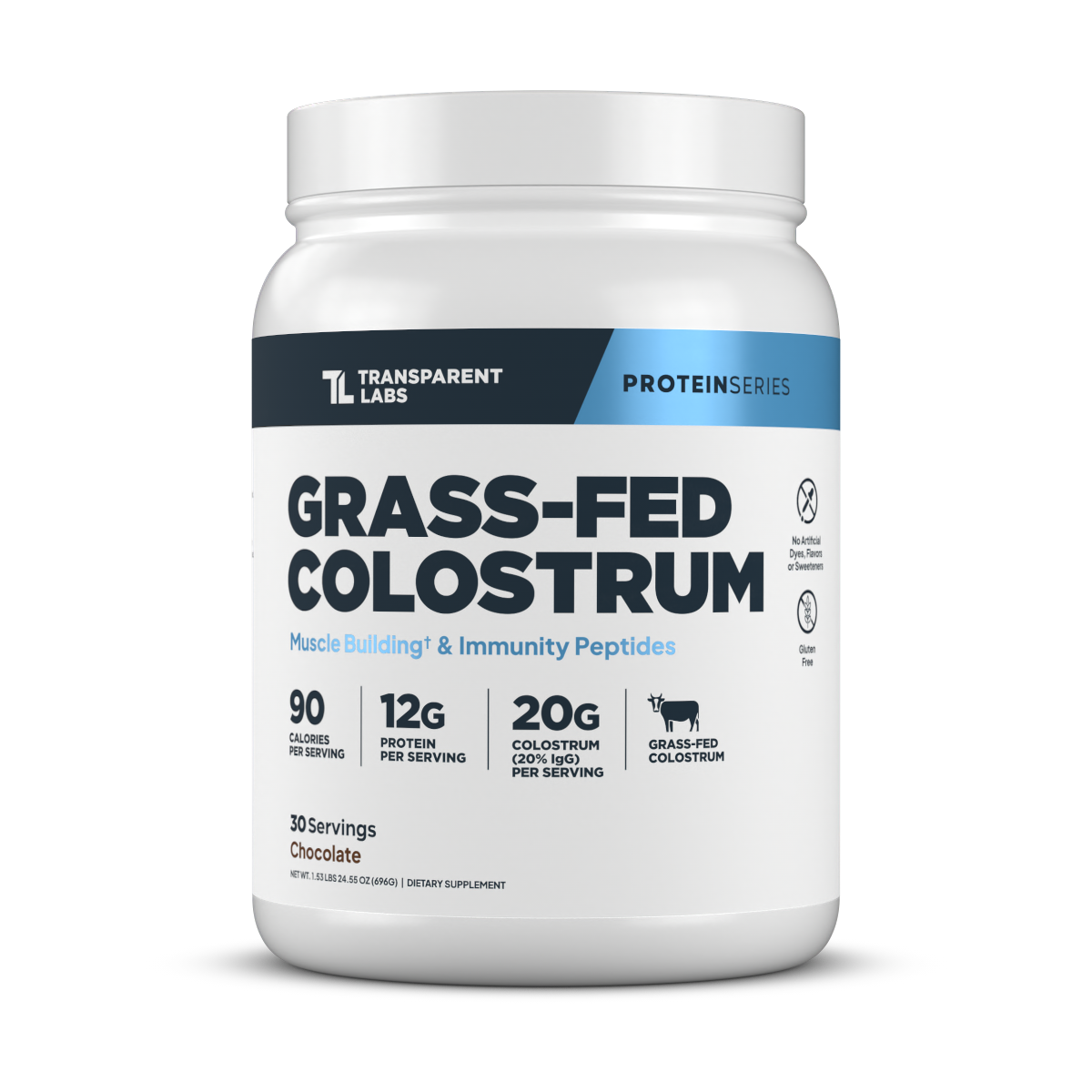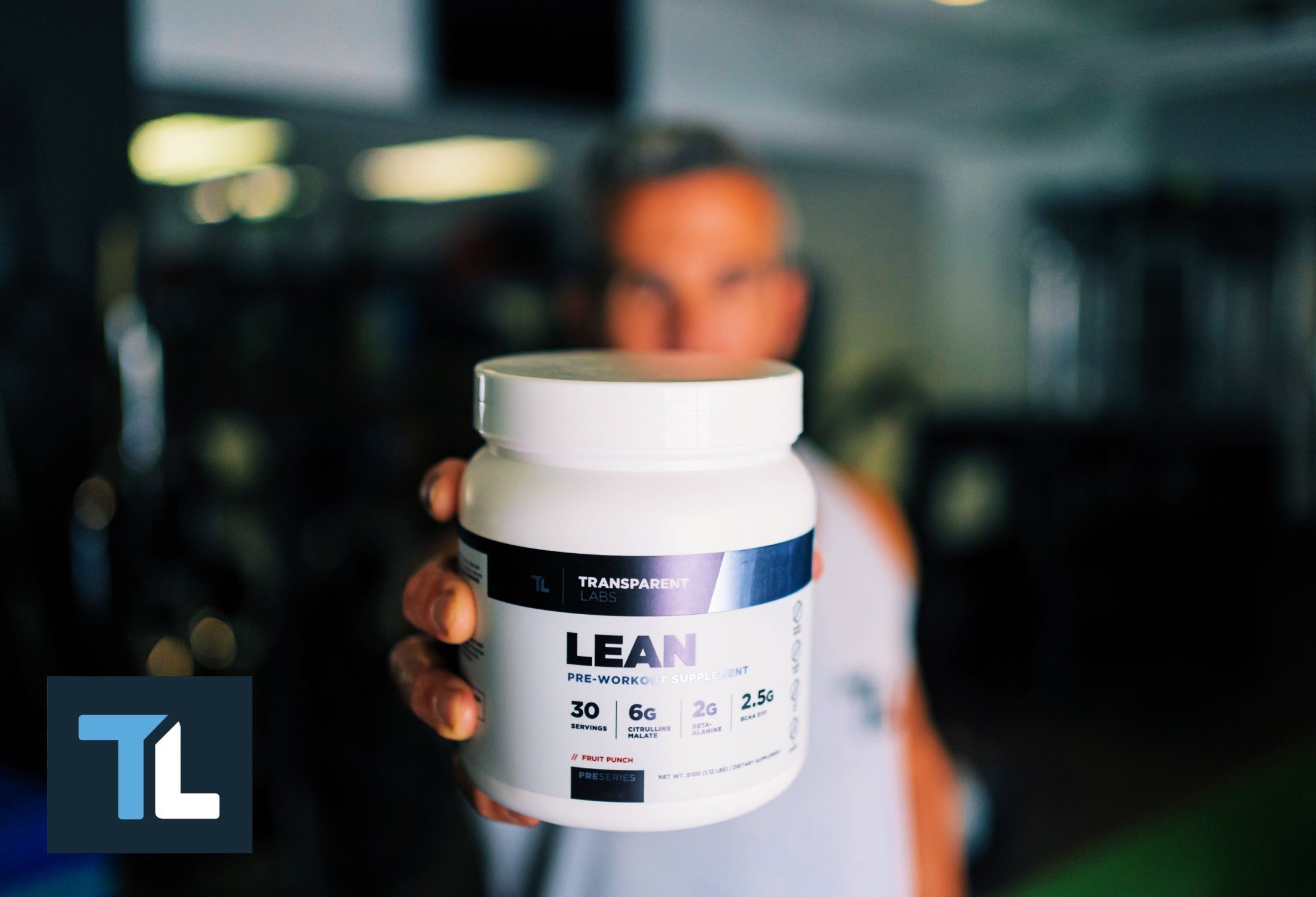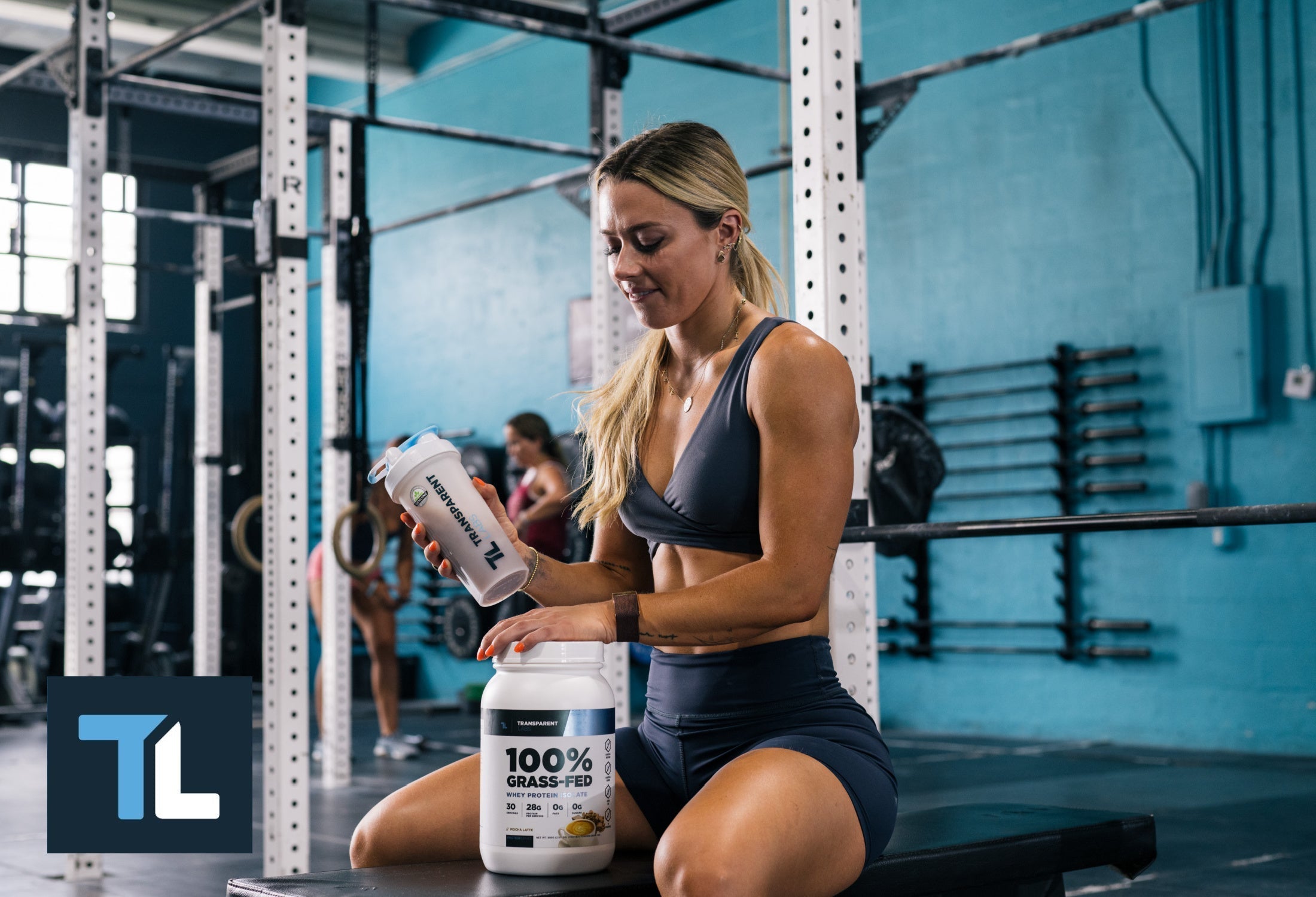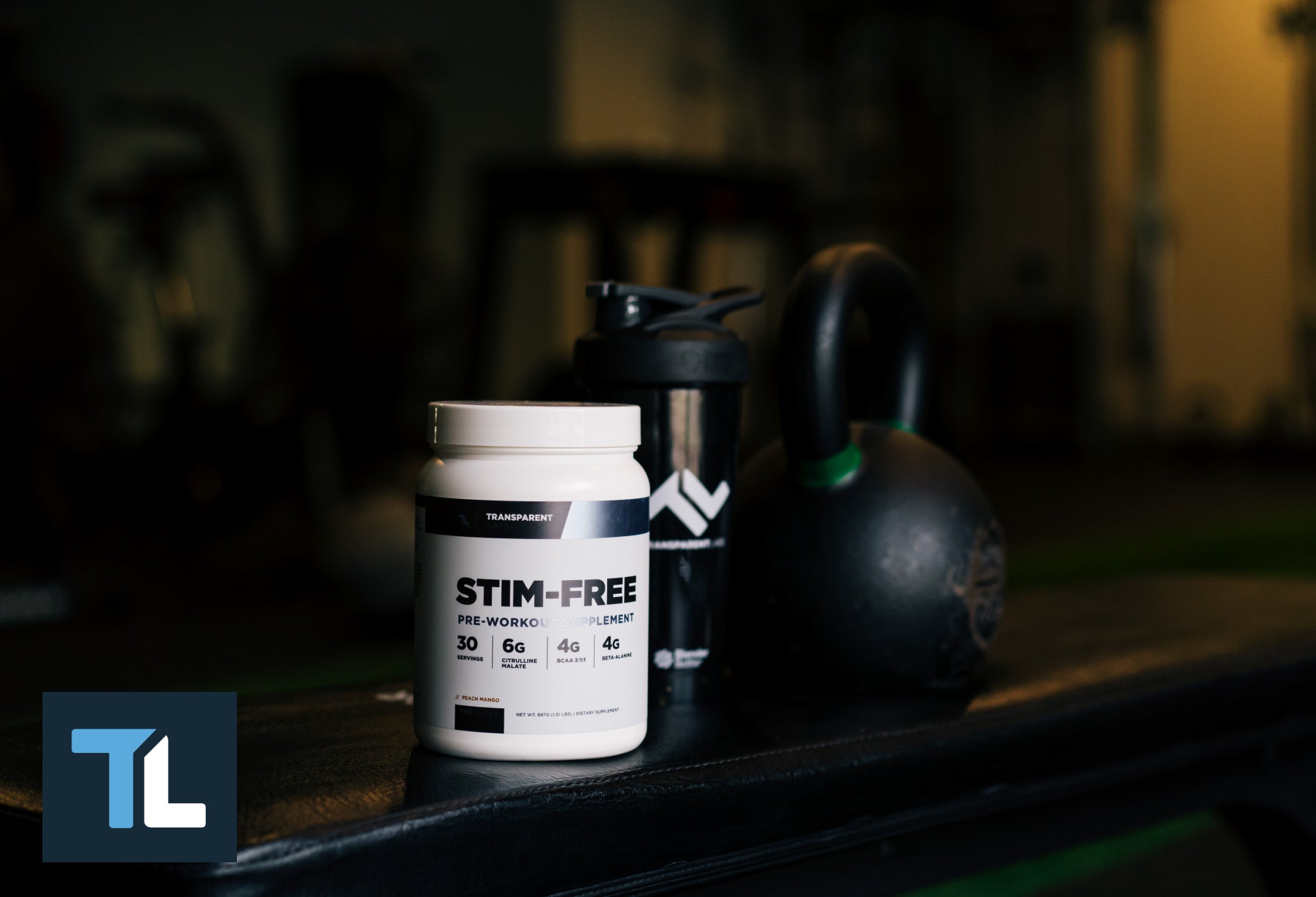If you've ever researched how to bolster your gut health, you probably came across colostrum and probiotics. These two supplements are being touted as some of the best trends in wellness right now. While probiotics have been in the limelight for quite some time now, colostrum (lovingly referred to as "liquid gold") is now taking some space in the spotlight.
But before you start spending money, here's what the science actually says about when each one works —- and when they don't.
What Is Bovine Colostrum?
Bovine colostrum is the thick, yellowish first milk that cows produce right after giving birth. It's packed with immune-boosting compounds that help calves survive their first days of life. Research suggests these compounds may also be good for us.
These include:
-
Antibodies (immunoglobulins): These help fight off harmful bacteria and viruses, with IgG being the main type found in bovine colostrum.
-
Lactoferrin: An iron-binding protein with antibacterial and antiviral properties and may help reduce risk of the common cold and flu.
-
Growth factors: These are natural compounds that help repair and rebuild tissues in the gut.
-
Oligosaccharides: This is a type of sugar that feeds the good bacteria in your digestive system.
-
Vitamins and minerals: It's a source of vitamins A, B, C, D, E, and K as well as calcium, phosphorus, magnesium, and zinc.
What Are Probiotics?
Probiotics are live microorganisms, essentially "good bacteria," that feed your gut microbiome. They're found naturally in fermented foods (such as yogurt and kimchi) and they're also available as supplements in pill or powder form.
Here's what you need to know about probiotic supplements:
-
Specific strains: Not all bacteria are created equal. Lactobacillus rhamnosus GG and Lactobacillus rhamnosus LB3 might sound similar, but they can have completely different effects in your body. Some products contain one type of bacteria, others contain several different strains working together.
-
CFUs: CFU stands for colony-forming units — basically, how many live bacteria are in your supplement when you take it. Higher total CFU counts don't guarantee efficacy, no matter what the brand's marketing says.
-
Delivery systems: The bacteria need to survive your stomach acid to reach your intestines, so companies use different capsule types, coatings, and storage methods to keep them alive. This determines the strength of your probiotic, and whether or not it'll actually work.
Probiotics work through several different pathways in your gut. The most common way is by crowding out harmful bacteria; that means they compete for space and resources, making it harder for bad bugs to take hold. They also produce beneficial compounds like short-chain fatty acids that feed your gut lining and help reduce inflammation, according to the NIH. But many of the effects are highly strain-specific, meaning different types of probiotic bacteria work in completely different ways. That's why we can't assume all probiotics will have the same benefits.
Diarrhea
Colostrum: Limited evidence. Small studies suggest potential benefits for traveler's diarrhea, but larger, well-controlled trials are needed.
Probiotics: Moderate evidence supports certain strains for preventing diarrhea, but it depends on the strain. A 2024 systematic review and meta-analysis shows that the specific probiotic strains that can help with traveler's diarrhea are L. acidophilus, L. rhamnosus, L. fermentum, S. cerevisiae, and S. boulardii. And a comprehensive 2012 JAMA meta-analysis of 82 randomized controlled trials found probiotics reduced the risk of antibiotic-associated diarrhea.
The verdict: Probiotics have stronger evidence for diarrhea prevention.
Exercise-Related GI Symptoms
Colostrum: Moderate evidence in endurance athletes. A small 2011 study of 12 people found that intense exercise caused gut barrier damage to worsen by 2.5 times in those taking a placebo, but colostrum supplementation prevented 80% of this damage. A 2021 systematic review concluded bovine colostrum supplementation may help prevent exercise-induced increases in gut permeability, typically with daily doses of 10-20g.
Probiotics: Mixed evidence. Some studies with multi-strain formulations show benefits, but results are inconsistent across different athletic populations.
The verdict: Colostrum may have an edge for exercise-induced GI stress, but more research is needed.
Intestinal Permeability ("Leaky Gut")
Colostrum: A 2022 systematic review found bovine colostrum supplementation may significantly improve gut permeability in athletes, but we still need more well-designed studies to back this up. It's the growth factors in colostrum that seem to support barrier function.
Probiotics: A 2023 systematic review found that while animal studies consistently showed that probiotics reduced intestinal permeability, results from clinical human trials were inconsistent.
The verdict: Colostrum shows more consistent effects on gut permeability, though we still need more clinical research to solidify these findings.

Irritable Bowel Syndrome (IBS)
Colostrum: A few small studies suggest potential benefits, but we don't have enough data to draw any conclusions.
Probiotics: A 2017 meta-analysis found that B. infantis showed promise for reducing IBS symptom severity without negative side effects. But the effects are modest, and results can be inconsistent across studies.
The verdict: Probiotics have better evidence for IBS symptom management.
General Gut Health
Colostrum: Limited evidence for general wellness claims. Most studies focus on specific populations or conditions.
Probiotics: A 2018 systematic review concluded that probiotics don't have a lasting effect on the microbiome — the benefits are mostly transient. Leading medical groups haven't found enough evidence to recommend probiotics for healthy adults.
The verdict: Neither has strong evidence for improving digestion in people without health conditions.
Safety Risks
Since bovine colostrum comes from cows, it contains milk proteins and small amounts of lactose. That means people with dairy allergies or sensitivities may not be able to take it.
The NIH states that probiotics aren't linked to adverse side effects in people without health conditions. However, immunocompromised people should avoid taking a probiotic from the store shelf. If you have a weak immune system or serious health conditions, major medical organizations recommend only using specific probiotic strains that have been proven to work for your particular condition — always speak to your doctor before taking one.
See a doctor before starting either supplement if you have immune system disorders, are taking immunosuppressive medications, or have serious digestive conditions. Starting a new supplement without the green light from your doctor, especially if you're living with a health condition, is never a good idea.

The Bottom Line
Neither colostrum nor probiotics is a magic bullet for gut health, and the choice between them should be based on your specific needs rather than general wellness trends.
But the bottom line is that probiotics have a stronger research foundation. With decades of clinical trials and multiple meta-analyses, we have solid evidence for their use in preventing antibiotic-associated diarrhea, managing certain IBS symptoms, and reducing traveler's diarrhea risk. The key is choosing the right strain for your specific condition because not all probiotics work the same way.
Colostrum shows promise but has a much smaller research base. While early studies suggest benefits for exercise-induced gut issues and intestinal barrier function, we just don't have the volume of high-quality studies that we do for probiotics… yet. Most colostrum research involves small participant groups and focuses on very specific populations like endurance athletes.
If you're just trying to boost your gut health without trying to solve any health issues, then you might not need either supplement. The evidence for general digestive wellness benefits in people without specific gut issues is weak for both colostrum and probiotics. Your money might be better spent on a fiber-rich, diverse diet that naturally supports your microbiome.
FAQ/PPA
Should I take a probiotic or colostrum?
It depends on what you're trying to address. Choose probiotics if you're dealing with antibiotic-associated diarrhea, IBS symptoms, or recovering from antibiotic treatment. Go with colostrum if you're an athlete dealing with exercise-induced gut issues or suspect you have a leaky gut, but you might need to avoid it if you have dairy allergies.
What are the disadvantages of colostrum?
The main downsides are that it contains dairy proteins and small amounts of lactose, so it's not OK for people with milk allergies or lactose intolerance. It's also generally more expensive than most probiotic supplements, and while it shows promise for certain conditions, the research here is still lacking.
Can colostrum replace probiotics?
Colostrum and probiotics work in completely different mechanisms. If you have a condition with strong evidence for probiotics (like antibiotic-associated diarrhea), colostrum won't provide the same targeted benefits. Always talk to your healthcare provider before starting a new supplement, especially if you have a medical condition.








